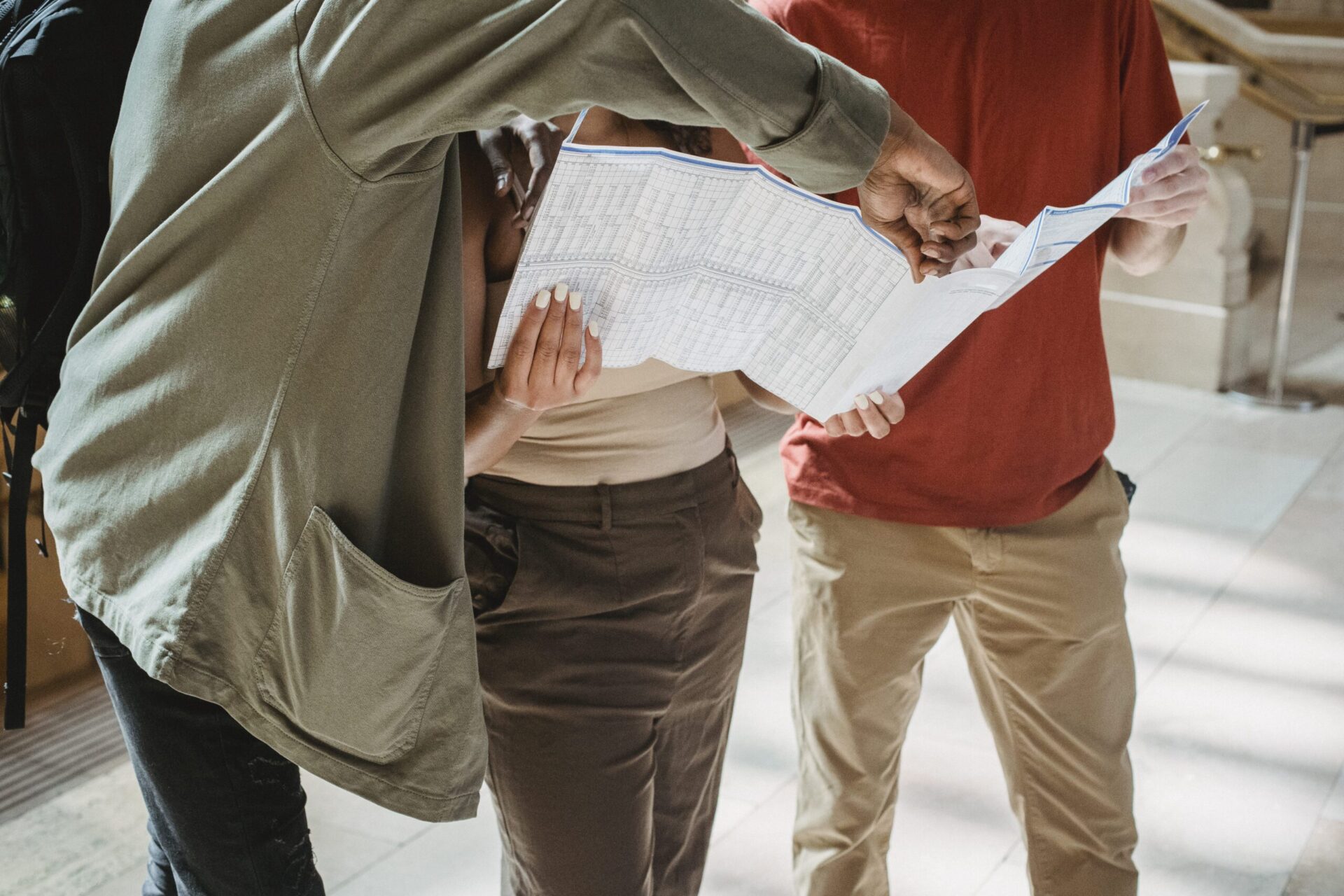Key Takeaways:
- 1. Start planning early: To ensure a successful family reunion, it is important to start the planning process as early as possible. This allows ample time for organizing logistics, booking accommodations, and sending out invitations.
- 2. Get everyone involved: Encourage all family members to participate in the planning process by assigning tasks and responsibilities. This not only lightens the workload but also ensures that everyone feels included and invested in making the gathering memorable.
- 3. Plan activities for all ages: Consider the diverse interests and ages of family members when planning activities. Include options that cater to different age groups, such as games for children, outdoor adventures for adults, and bonding activities for all generations.
- 4. Create a budget: Establishing a budget early on helps manage expenses and prevents overspending. Consider asking each family member to contribute a small amount towards common expenses or explore sponsorship opportunities from local businesses.
- 5. Capture memories: Make sure to designate someone responsible for capturing photos or videos throughout the reunion. These memories will be cherished by all participants and can be shared with those who couldn’t attend, ensuring that the gathering lives on beyond its duration.
Important Factors to Consider When Planning a Family Reunion
When planning a family reunion, there are several important factors that need to be considered to ensure the event is successful and enjoyable for all family members. Firstly, it is crucial to choose a date and time that works for as many family members as possible. This may involve sending out surveys or conducting phone calls to determine the availability of key individuals. Additionally, considering the age range and interests of family members can help in selecting appropriate activities and venues.
Another important factor to consider is the budget for the reunion. Determining a budget early on will help guide decisions regarding accommodations, meals, activities, and any other expenses associated with the event. It is also essential to establish clear communication channels with family members throughout the planning process. This can be done through email newsletters, social media groups, or dedicated websites where updates and information about the reunion can be shared.
Ensuring the Chosen Location is Suitable for All Family Members
Selecting a location that caters to the needs and preferences of all family members is crucial for a successful reunion. One consideration is accessibility – choosing a location that is easily reachable by most attendees, especially those traveling from far distances. It’s also important to consider whether there are any elderly or disabled family members who may require special accommodations or facilities.
Furthermore, taking into account the interests and preferences of different age groups within your family can help in selecting a location that offers a variety of activities and attractions suitable for everyone. For example, if you have young children attending the reunion, it would be ideal to choose a location with playgrounds or kid-friendly entertainment options nearby.
Factors to Consider when Choosing a Location:
- Accessibility for all attendees
- Potential special accommodations for elderly or disabled family members
- Availability of activities and attractions suitable for different age groups
- Proximity to amenities such as grocery stores, restaurants, and medical facilities
- Parking availability if attendees will be driving to the location
Creative Ideas for Activities and Games to Keep Everyone Entertained
One of the key elements of a successful family reunion is planning engaging activities and games that will keep everyone entertained throughout the event. Incorporating both traditional and unique activities can add variety and excitement to the gathering.
Some popular activity ideas include organizing a talent show or karaoke night where family members can showcase their skills and entertain each other. Another idea is to create a scavenger hunt that takes participants around the reunion location, encouraging interaction and exploration. Additionally, setting up friendly competitions such as relay races or sports tournaments can bring out the competitive spirit in family members while fostering bonding and teamwork.
Ideas for Activities and Games:
- Talent show or karaoke night
- Scavenger hunt around the reunion location
- Friendly competitions like relay races or sports tournaments
- Funny photo booth with props for memorable pictures
- Arts and crafts stations for creative expression
Effective Communication with Family Members for Maximum Attendance and Participation
Utilizing Multiple Communication Channels
In order to ensure maximum attendance and participation at the family reunion, it is important to effectively communicate with all family members. One way to achieve this is by utilizing multiple communication channels. This can include sending out traditional invitations through mail, creating a dedicated event website or social media page, and sending regular email updates.
Additionally, it can be helpful to establish a designated point person or committee responsible for communication. This individual or group can serve as the main contact for any questions or concerns regarding the reunion, ensuring that all information is consistently and accurately shared with family members.
Sending Reminders and RSVP Requests
To encourage attendance and gather accurate headcounts for accommodations and meals, it is essential to send reminders and RSVP requests. These reminders can be sent through various channels such as email, text messages, or even personalized phone calls. Including a deadline for RSVPs will help in organizing accommodations and meals efficiently.
Furthermore, offering incentives for early RSVPs, such as discounted registration fees or special perks during the reunion, can motivate family members to respond promptly. By keeping track of responses and following up with those who have not yet replied, you can ensure that everyone feels included and accounted for.
Tips for Organizing Accommodations and Meals for a Large Group
Creating Accommodation Options
When organizing accommodations for a large group at a family reunion, it is important to consider the diverse needs of attendees. To cater to different preferences and budgets, provide a range of options including hotels near the reunion venue, vacation rentals, or even camping grounds nearby.
You can create a list of recommended accommodations along with their contact information and any special rates negotiated for the reunion. This information can be shared through the event website or included in the invitation package.
Coordinating Meal Plans
Meal planning for a large group can be a logistical challenge, but with proper organization, it can be a highlight of the family reunion. One option is to arrange for catered meals or buffet-style dining at the reunion venue. This ensures that everyone is well-fed and eliminates the need for individual meal preparations.
Alternatively, you can organize potluck-style meals where each family contributes a dish or two. To avoid duplication and ensure variety, create a sign-up sheet where attendees can indicate what they plan to bring. Additionally, consider dietary restrictions and preferences when planning meals to accommodate everyone’s needs.
Incorporating Meaningful Traditions or Rituals into the Family Reunion
Sharing Family Stories and Memories
A meaningful way to incorporate traditions into a family reunion is by sharing family stories and memories. Encourage family members to prepare short presentations or speeches about their favorite memories or significant events in the family’s history. This can be done during designated storytelling sessions or as part of an evening program.
To make it more interactive, you can create a “memory wall” where attendees can post photos or write down their favorite memories on sticky notes. This not only fosters connection but also serves as a visual representation of the collective history of the family.
Organizing Traditional Games or Activities
Incorporating traditional games or activities into the family reunion adds an element of fun and nostalgia. Research games that were popular among previous generations in your family and organize tournaments or friendly competitions during the event.
You could also consider organizing workshops where older family members teach younger ones how to make traditional crafts or cook family recipes. This not only preserves traditions but also provides an opportunity for intergenerational bonding.
Documenting and Preserving Memories from the Family Reunion
Hiring a Professional Photographer or Videographer
To ensure that memories from the family reunion are captured professionally, consider hiring a photographer or videographer. They can document key moments, group photos, and candid shots throughout the event. Having professional-quality photos or videos will allow family members to relive the reunion long after it has ended.
Creating a Digital Memory Book
A creative way to preserve memories is by creating a digital memory book. Encourage attendees to share their favorite photos, stories, and reflections from the reunion. Compile these contributions into a digital format such as an online photo album or a video montage. This can be shared with all family members as a keepsake of the reunion.
Establishing an Archive for Family Memorabilia
To ensure long-term preservation of important family memorabilia, consider establishing an archive specifically dedicated to storing items related to the family reunion. This could include photographs, written accounts, souvenirs, and any other significant artifacts collected during the event.
Create a system for organizing and cataloging these items so that future generations can easily access and appreciate them. Consider appointing someone responsible for maintaining and expanding this archive over time.
In conclusion, planning a memorable family reunion requires careful organization, consideration of everyone’s preferences, and creating activities that foster bonding and lasting memories. By following these steps, families can create a truly special gathering that brings loved ones closer together and creates cherished moments for years to come.
How far in advance do you plan a family reunion?
To ensure ample time for the family to choose a date, make arrangements, and address any conflicts, it is recommended to begin discussing potential reunion dates at least one year in advance. It is important to select a date that works well for the entire family and takes into consideration school breaks and holiday schedules if children will be attending.
Why are family reunions so important?
A family reunion can have a significant impact on family members, as it allows for the creation of long-lasting memories through new and enjoyable experiences. It provides an opportunity to share stories, traditions, and cherished family recipes.
What are some interesting facts about family reunions?
According to a survey, 41% of participants have family reunions annually, while 45% have them every 2-4 years. The most common activities at these gatherings include taking family photos (70%), playing family games (56%), and participating in sports activities (43%). This data was collected on June 9, 2015.
How do I make family gatherings less awkward?
Having a plan is one of the most effective ways to cope with social anxiety disorder during family gatherings. Creating a list of individuals and subjects to avoid can help you steer clear of uncomfortable situations. Additionally, writing down a list of topics that you feel at ease discussing can be beneficial.
What is the most popular month for family reunions?
July is designated as U.S. National Family Reunion Month, and it is a time of excitement as families come together for reunions. Family is defined as a connection with individuals who are related to you either by blood or through legal ties, such as grandparents, parents, siblings, cousins, uncles, and aunts.
What is the best month for a family reunion?
The period between June and September is the most preferred time for family reunions because of the favorable weather, convenient travel, absence of school for children, and the tendency for people to take vacations during this time.





